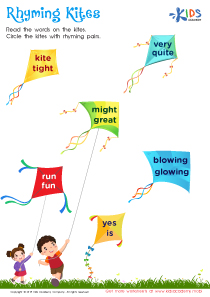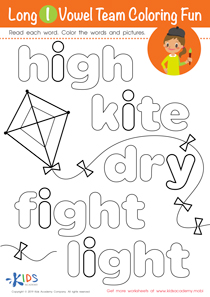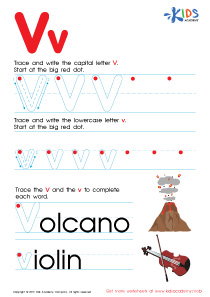Science Lessons | Relationships in ecosystems, Kindergarten
0 results
Welcome to our engaging and thought-provoking lessons on Relationships in Ecosystems for Kindergarten children. Our carefully curated curriculum includes interactive worksheets that encourage exploration and problem-solving, as well as educational videos that are guaranteed to captivate young learners' attention. With the help of our assessment quizzes, students will be able to gauge their understanding and track their progress in an informative and engaging way. Our Relationships in Ecosystems Lessons are the perfect way to introduce children to the fascinating world of nature and make them aware of the importance of preserving it. Join us today and set your children on the path towards becoming responsible and thoughtful stewards of the environment!
As educators, we understand the importance of introducing children to the natural world at an early age. One of the most vital components of the natural world is the ecosystem. Ecosystems are composed of various living and nonliving things that interact with one another. Therefore, it is crucial to teach young children how to understand and appreciate the relationships that exist within ecosystems.
The lessons on relationships in ecosystems for children in Kindergarten are designed to help them learn about the different relationships that exist between living and nonliving things. These lessons are interactive and engaging, consisting of worksheets, educational videos, and assessment quizzes. The lessons are tailored to ensure that children learn and understand the concept of ecosystems by introducing fun and interactive activities.
The interactive worksheets that are part of this lesson plan promote critical thinking skills and are designed to help children understand the interactions between living things and nonliving things in ecosystems. Through these worksheets, children learn how plants, animals, and organisms in ecosystems interact to create a balance in the natural world.
Apart from the interactive worksheets, these lessons also include educational videos that show children how ecosystems work. These videos are specifically designed for Kindergarten students, making them easy to understand, fun, and visually appealing. The videos cover aspects such as the roles of plants and animals in an ecosystem, interdependence between the living and nonliving things, and the importance of maintaining a healthy ecosystem.
In addition to the interactive worksheets and educational videos, the lessons also include assessment quizzes. These quizzes are an essential tool for evaluating the understanding and retention of the learning materials. The quizzes help to identify areas where the students are struggling and can be used to guide them toward a better understanding of ecosystems, their relationships, and their importance in the natural world.
The concepts and understanding that children learn through these lessons are not just practical for their current grade level. The fundamental knowledge of relationships in ecosystems can help them later in life as they advance in their studies and learn about biology, ecology, and environmental science. Furthermore, this understanding of ecosystems allows children to develop empathy and compassion towards living things in their natural habitats, helping them to appreciate the importance of conservation efforts.
In conclusion, the lessons on relationships in ecosystems for children in Kindergarten are useful in many ways, from nurturing an understanding of the natural world to promoting critical thinking skills and empathy.















